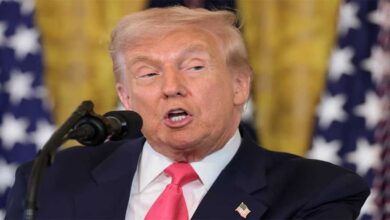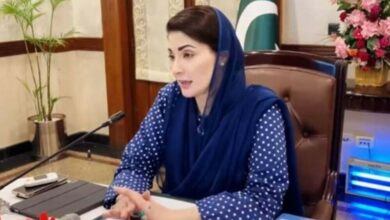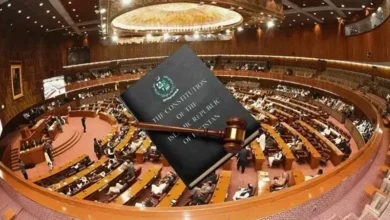Announcing its verdict on a presidential reference seeking legal opinion on the holding of Senate election through an open vote, the Supreme Court on Monday said polls for the Upper House will be held through a secret ballot.
The 4-1 majority opinion was announced by a five-judge larger bench, headed by Chief Justice of Pakistan (CJP) Gulzar Ahmed and comprising Justice Mushir Alam, Justice Umar Ata Bandial, Justice Ijazul Ahsan, and Justice Yahya Afridi.
The dissenting note was written by Justice Afridi who observed that “the opinion sought [by the president] is not a question of law within the contemplation of Article 186 of the Constitution of the Islamic Republic of Pakistan, 1973”. He, therefore, abstained from giving his opinion on the case.
The reference was forwarded to the top court in December under Article 186 of the Constitution, which relates to the advisory jurisdiction of the forum, after Prime Minister Imran Khan expressed his desire to curtail the practice of horsetrading in Senate elections by introducing an open-ballot system.
Following two months of proceedings, the court had on Thursday reserved its verdict, later announcing to issue it on Monday (today).
In the eight-page verdict, the Supreme Court observed elections to the House are held in accordance with the law and the Constitution, saying it “is the responsibility of the Election Commission of Pakistan (ECP) to ensure that the election is conducted honestly, justly, fairly, and in accordance with [the] law and that corrupt practices are guarded against.”
It also said that the commission could “use the latest technology to ensure the holding of transparent elections” by exercising powers granted to it under Article 218.
However, the verdict admitted that the secrecy of the ballot papers was “not final”, quoting a decision by the top court on the same in 1967 (Niaz Ahmed versus Azizuddin case).
While the order cited Article 226 of the Constitution to support its argument, the judges said the Parliament can decide if it feels the need to end the secrecy of the voting process.
Commenting on the verdict, Attorney General of Pakistan (AGP) Khalid Jawed Khan said it was now up to the ECP to select what method to use in the March 3 elections to check corruption.
“The ECP is bound to investigate and trace the ballot to see whether any corrupt practice occurred,” he said in a statement.
The commission, he said, was “constitutionally bound” to follow the opinion of the apex court and implement it without any amendments to existing rules or legislation.
HISTORIC DECISION: GOVT
Addressing a press conference soon after the verdict was issued, Pakistan Tehreek-e-Insaf (PTI) Senator Faisal Javed Khan while terming the ruling a “splendid decision” said it was a “victory for Pakistan”.
He said he was grateful that the court listened to all the stakeholders.
“The attorney general’s team worked hard and great arguments were done. Such a detailed discussion on the Senate has not happened before,” Khan said.
“The honourable court said secrecy (of the election process) is not absolute,” he observed and said the verdict implies “it cannot stay (the same way) till the Day of Judgement.”
Prime Minister Imran, he said, had made efforts to end “bribery, thievery and buying and selling” in the Senate polls.
“When elections are held through identifiable ballots, no one would dare to sell their vote,” he said, adding: “This is a splendid opinion for transparency.”
The senator said after the verdict, the election commission would have to ensure three things: identifiable ballots, proportional representation and ensuring free and transparent elections.










